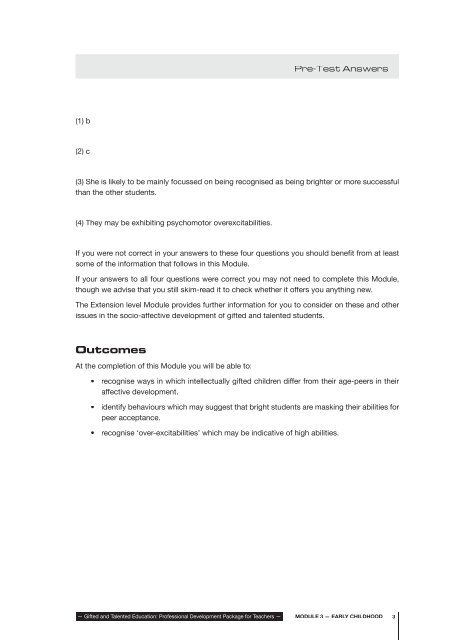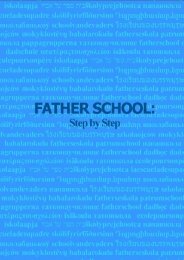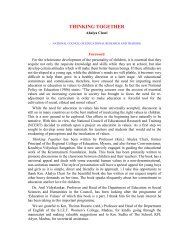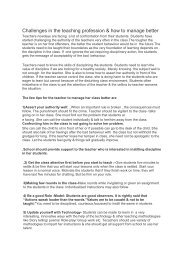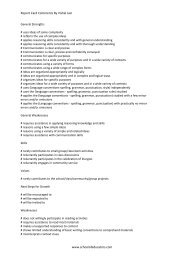Module 3 - School of Educators
Module 3 - School of Educators
Module 3 - School of Educators
- No tags were found...
You also want an ePaper? Increase the reach of your titles
YUMPU automatically turns print PDFs into web optimized ePapers that Google loves.
Pre-Test Answers(1) b(2) c(3) She is likely to be mainly focussed on being recognised as being brighter or more successfulthan the other students.(4) They may be exhibiting psychomotor overexcitabilities.If you were not correct in your answers to these four questions you should benefit from at leastsome <strong>of</strong> the information that follows in this <strong>Module</strong>.If your answers to all four questions were correct you may not need to complete this <strong>Module</strong>,though we advise that you still skim-read it to check whether it <strong>of</strong>fers you anything new.The Extension level <strong>Module</strong> provides further information for you to consider on these and otherissues in the socio-affective development <strong>of</strong> gifted and talented students.OutcomesAt the completion <strong>of</strong> this <strong>Module</strong> you will be able to:• recognise ways in which intellectually gifted children differ from their age-peers in theiraffective development.• identify behaviours which may suggest that bright students are masking their abilities forpeer acceptance.• recognise ‘over-excitabilities’ which may be indicative <strong>of</strong> high abilities.— Gifted and Talented Education: Pr<strong>of</strong>essional Development Package for Teachers — MODULE 3 — EARLY CHILDHOOD3


